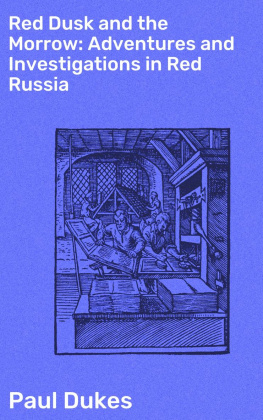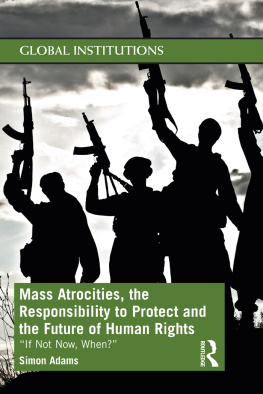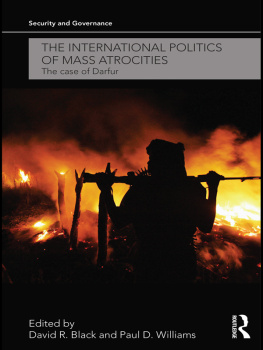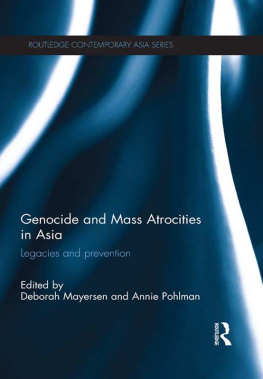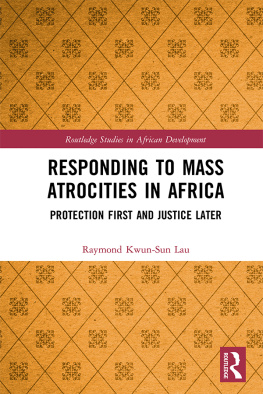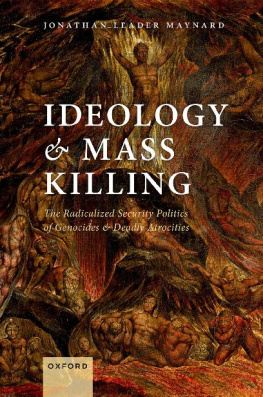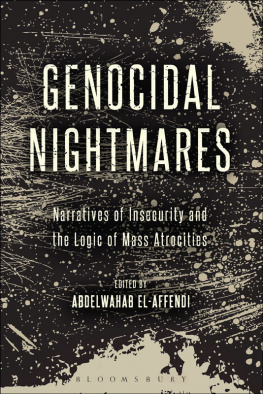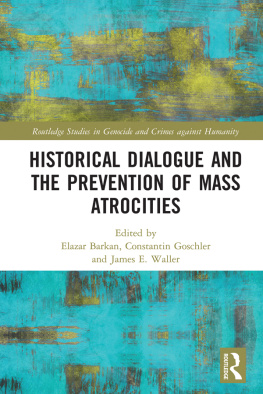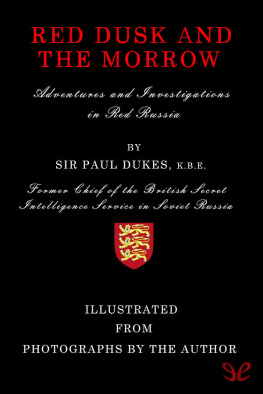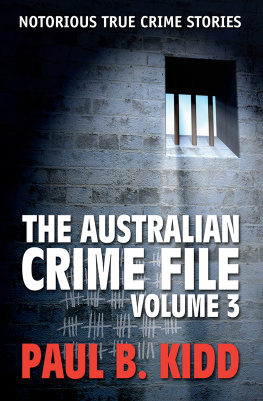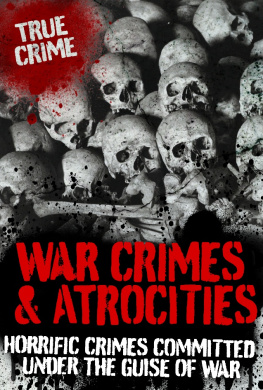Paul C. Morrow - Unconscionable crimes: How Norms Explain and Constrain Mass Atrocities
Here you can read online Paul C. Morrow - Unconscionable crimes: How Norms Explain and Constrain Mass Atrocities full text of the book (entire story) in english for free. Download pdf and epub, get meaning, cover and reviews about this ebook. publisher: MIT Press, genre: Politics. Description of the work, (preface) as well as reviews are available. Best literature library LitArk.com created for fans of good reading and offers a wide selection of genres:
Romance novel
Science fiction
Adventure
Detective
Science
History
Home and family
Prose
Art
Politics
Computer
Non-fiction
Religion
Business
Children
Humor
Choose a favorite category and find really read worthwhile books. Enjoy immersion in the world of imagination, feel the emotions of the characters or learn something new for yourself, make an fascinating discovery.

- Book:Unconscionable crimes: How Norms Explain and Constrain Mass Atrocities
- Author:
- Publisher:MIT Press
- Genre:
- Rating:5 / 5
- Favourites:Add to favourites
- Your mark:
- 100
- 1
- 2
- 3
- 4
- 5
Unconscionable crimes: How Norms Explain and Constrain Mass Atrocities: summary, description and annotation
We offer to read an annotation, description, summary or preface (depends on what the author of the book "Unconscionable crimes: How Norms Explain and Constrain Mass Atrocities" wrote himself). If you haven't found the necessary information about the book — write in the comments, we will try to find it.
Paul C. Morrow: author's other books
Who wrote Unconscionable crimes: How Norms Explain and Constrain Mass Atrocities? Find out the surname, the name of the author of the book and a list of all author's works by series.
Unconscionable crimes: How Norms Explain and Constrain Mass Atrocities — read online for free the complete book (whole text) full work
Below is the text of the book, divided by pages. System saving the place of the last page read, allows you to conveniently read the book "Unconscionable crimes: How Norms Explain and Constrain Mass Atrocities" online for free, without having to search again every time where you left off. Put a bookmark, and you can go to the page where you finished reading at any time.
Font size:
Interval:
Bookmark:
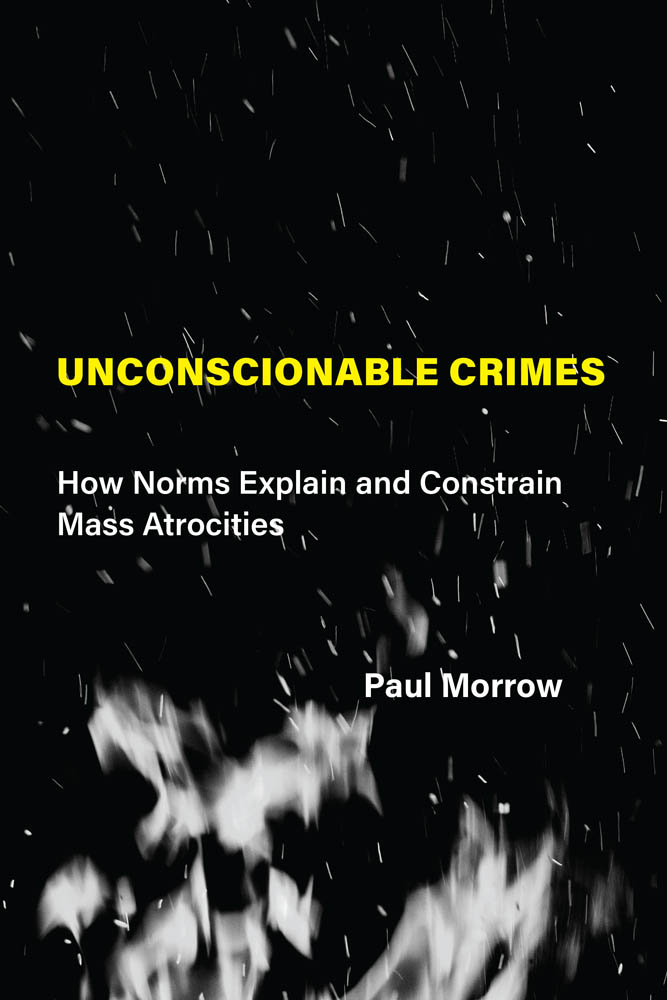
Unconscionable Crimes
How Norms Explain and Constrain Mass Atrocities
Paul Morrow
The MIT Press
Cambridge, Massachusetts
London, England
2020 Massachusetts Institute of Technology
All rights reserved. No part of this book may be reproduced in any form by any electronic or mechanical means (including photocopying, recording, or information storage and retrieval) without permission in writing from the publisher.
Library of Congress Cataloging-in-Publication Data
Names: Morrow, Paul C., author.
Title: Unconscionable crimes : how norms explain and constrain mass atrocities / Paul C. Morrow.
Description: Cambridge, Massachusetts : The MIT Press, [2019] | Includes bibliographical references and index.
Identifiers: LCCN 2019059147 | ISBN 9780262044622 (hardcover)
Subjects: LCSH: Genocide. | Atrocities. | Social norms.
Classification: LCC HV6322.7 .M675 2019 | DDC 304.6/63dc23
LC record available at https://lccn.loc.gov/2019059147
d_r0
For my grandfather,
Lou Marinucci,
who made it possible
List of Table
Salient Distinctions among Moral, Legal, and Social Norms
Although this book is addressed to human cruelty, it attests to human kindness. The support of many individuals and institutions allowed me to complete this study amid the ups and downs of academic life. Although I cannot here name everyone who has assisted me in my work, I want to thank the following mentors, colleagues, and sponsors for their generous help.
This book was made possible in part by funds granted through a Raab Family Foundation Fellowship at the Jack, Joseph and Morton Mandel Center for Advanced Holocaust Studies of the United States Holocaust Memorial Museum. The statements made and views expressed within are, of course, solely my own responsibility. I am especially grateful to the Emerging Scholars Program at the Mandel Center for its support in the preparation of the manuscript and book proposal.
Additional financial support for the research underlying this book came from a New Horizons Travel Grant and a Social Sciences and Humanities Research Grant from the University of Virginia, as well as a George J. Graham Jr. Dissertation Completion Fellowship from the Robert Penn Warren Center for the Humanities at Vanderbilt University. An intense fortnight at the Holocaust Education Foundations Summer Institute on the Holocaust and Jewish Civilization at Northwestern University sharpened my thinking and established new friendships. I am especially grateful to Peter Hayes and Sarah Cushman for directing this program and to Theodore Zev Weiss and Alice R. Weiss for founding it.
Librarians and archivists at Vanderbilt University, the University of Virginia, Utrecht University, the Bodleian Library, the British Library, Royal Holloway, the Wiener Library for the Study of the Holocaust and Genocide, the NIOD Institute for War, Holocaust, and Genocide Studies, the Peace Palace Library, the Library of Congress, the Fortunoff Video Archive for Holocaust Testimonies, and the United States Holocaust Memorial Museum provided access to the primary and secondary sources I employed in this study. Ron Coleman, Rebecca Erbelding, Vincent Slatt, and Megan Lewis of the United States Holocaust Memorial Museums Library and Archives gave particularly valuable guidance during an early phase of this project and continued their support long after my residence in Washington came to an end.
Other members of the staff at the Mandel Center for Advanced Holocaust Studies furnished material and intellectual assistance. Conversations with Jo-Ellyn Decker, Emil Kerenji, Jrgen Matthus, and Suzanne Brown-Fleming substantially aided my work. Among my fellow visiting scholars, Mark Celinscak and Istvan Pal Adam have proved deeply inspiring friends. Special thanks go to Steve Feldman, whose patience watching this book develop was matched only by his confidence that it would one day be complete.
Teachers and colleagues at three universities have helped shape this project in its various phases. At Vanderbilt University, Lucius Outlaw, Marilyn Friedman, Jeffrey Tlumak, and Jos Medina taught me how to think like a philosopher, while Mona Frederick and Edward Friedman encouraged my tendency toward interdisciplinarity. Rob Talisse challenged me at a crucial stage to say what exactly I meant by the word explanation; his question has critically informed the text that follows. Larry May proved the ideal dissertation supervisor and offered unstinting support during the completion of this book.
At the University of Virginia, Colin Bird, George Klosko, Jennifer Rubenstein, and Murad Idris supplied helpful comments on various chapters while I was writing them. Jim Childress kindly allowed me to sit in on his Just War Theory seminar, and Gaby Finder, Jennifer Geddes, and Asher Biemann welcomed me into their Jewish studies reading group. My fellow postdocs Brookes Brown, Shruta Swarup, and Chris Berk offered trenchant readings of individual chapters, while Liya Yu delivered inimitable criticism of the project as a whole.
After an unplanned (and unfunded) career detour to the Netherlands, I had the good fortune to be included in the Ethics Institute Seminar Series hosted by the Department of Philosophy and Religious Studies at Utrecht University. Ingrid Robeyns graciously devoted time and energy to ensuring that I could continue my research, while Colin Hickey and Uur ngr helped me feel included in Utrechts scholarly community. Well-timed visits from Shannon Fyfe and Neal Palmer brightened the gray North Sea winter. Friends and colleagues at Utrecht in Dialoog facilitated lively conversations about many topics entirely unrelated to atrocity.
Some academic debts are all the more substantial because the institutional ties that normally underpin them are absent. In my case, I owe Colleen Murphy particular thanks; she has kindly read and commented on multiple chapters in this book while sharing her own expert perspective on the theory and practice of transitional justice. Berel Lang and Noah Shenker also provided valuable feedback despite their own busy careers. Sven-Erik Rose first fostered these concerns more than a dozen years ago and has maintained an interest in my work for all that time.
Along with these individuals, I thank audiences at the University of Virginia, Utrecht University, the University of Glasgow, Collegio Ghislieri in Pavia, Tilburg University, the University of Minnesota, Western Galilee College, the University of Dayton, and the University of Southern California for listening to portions of this book while it was in preparation.
No academic work wholly escapes the personal. In my case, family support has been crucial. My parents, Lee and Becky, kept faith in this project even when it carried me across the Atlantic. My brothers, Ed and Brian, and my sister-in-law, Theresa, provided hospitality during successive research trips to Washington DC, while my brother-in-law, Matt, joined me on a memorable visit to Berlin. Ann Smith and Beryl Parrington gave me uncommon support, fully welcoming me into their Scotch-Coloradan family. Finally, my partner, Megan, has made this book all it is and showed me what it could be.
Part of the material in chapter 1 appeared previously in Genocide Studies and Prevention under the title The Thesis of Norm Transformation in the Theory of Mass Atrocity (vol. 9, no. 1, 2015). I thank the editors of the journal for their permission to reprint this material.
Font size:
Interval:
Bookmark:
Similar books «Unconscionable crimes: How Norms Explain and Constrain Mass Atrocities»
Look at similar books to Unconscionable crimes: How Norms Explain and Constrain Mass Atrocities. We have selected literature similar in name and meaning in the hope of providing readers with more options to find new, interesting, not yet read works.
Discussion, reviews of the book Unconscionable crimes: How Norms Explain and Constrain Mass Atrocities and just readers' own opinions. Leave your comments, write what you think about the work, its meaning or the main characters. Specify what exactly you liked and what you didn't like, and why you think so.

